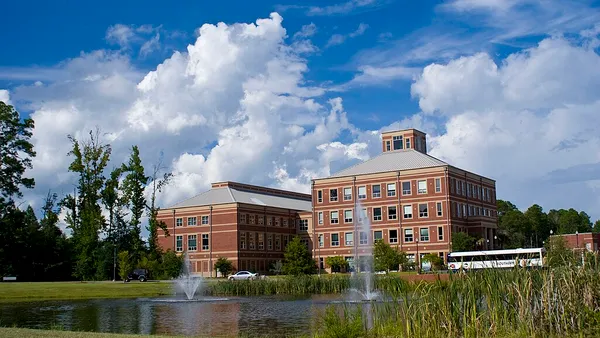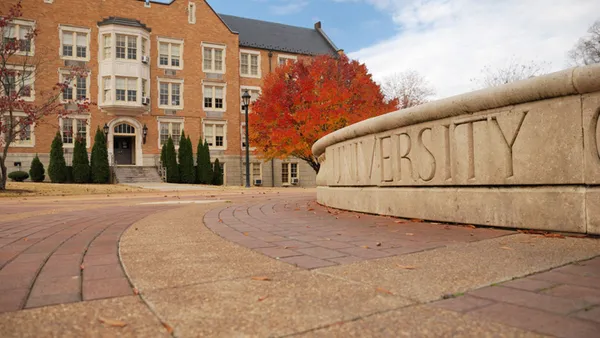Dive Brief:
- IBM announced Thursday that it will invest $100 million in programming, credentials and training at more than a dozen historically Black colleges and universities to improve diversity in quantum computing.
- The computing giant is also partnering with HBCUs to expand research in the field. In all, 21 HBCUs are involved in the pair of initiatives.
- HBCUs have been a target for investment in recent months, as institutions and corporations seek to address generations of systemic inequity.
Dive Insight:
The programs are "very specifically targeted" to help develop talent among students and research faculty at HBCUs, said Kayla Lee, growth product manager at IBM Quantum and Qiskit.
A research-focused effort, the IBM-HBCU Quantum Center, led by Howard University, will provide HBCUs with access to quantum computers and scientists, Lee said. The schools will work collaboratively to develop research capacity in this sector. "That was one of the big goals with the quantum center: What are ways that these schools can work together so that they can accomplish their goals better," Lee said.
IBM anticipates a five-year timeline for the center, according to Lee. In addition to research, its work could include recruitment events to help students find internships and identify career paths, as well as community events such as hackathons.
A separate training program, called the Skills Academy Academic Initiative, will provide $100 million worth of resources such as guest lectures, curriculum, digital badges, software and faculty training.
HBCUs have garnered attention, and funding, as institutions and companies seek to address generations of systemic inequity. These institutions tend to be less-resourced than predominantly White institutions and serve a greater proportion of students with high levels of need. The potential for bias in lending and in accreditation also stands to limit these institutions, research has found.
At least four HBCUs received their largest single gifts yet when philanthropist MacKenzie Scott donated $1.7 billion this summer to groups focused on racial, gender and LGBTQ equity. UNCF and Morehouse and Spelman colleges each received $40 million earlier this year from philanthropist Patty Quillin and Netflix CEO Reed Hastings. And nearly a dozen HBCUs received a combined $25 million for operating and capital needs, endowments and scholarships.
Some of the support has been STEM-specific. Howard University received $10 million earlier this year to support a program that helps underrepresented students earn STEM doctoral degrees. That program is modeled after the Meyerhoff Scholars Program started by the University of Maryland, Baltimore County, and replicated at other institutions. A report found that 13.8% of Black students who received doctoral degrees in 2016 did so in STEM fields — the smallest share of groups tracked.
In late 2019, UNCF announced it would give four HBCUs as much as $300,000 each to stand up innovation centers that merge STEM, healthcare, education and finance fields with the liberal arts.
Meanwhile, prior to the pandemic, colleges and universities nationwide were increasing investment in data science and computing programs, in some cases starting new schools and programs dedicated to expanding education and research in the field.
Single and combined donations of $10 million or more to HBCUs in 2020
| Amount | Donor | Recipients |
|---|---|---|
| $120 million-plus (estimate) | MacKenzie Scott, philanthropist | Howard, Tuskegee and Hampton universities, Morehouse and Spelman colleges, and Xavier University of Louisiana |
| $120 million | Patty Quillin, philanthropist, and Reed Hastings, Netflix CEO | UNCF, Morehouse College, Spelman College ($40 million each) |
| $40 million | Community Foundation of Greater Memphis | LeMoyne-Owen College |
| $25 million | Dominion Energy | Hampton, Norfolk State, Virginia Union, Virginia State, Allen, Claflin, South Carolina State, Central State, Wilberforce, North Carolina A&T State universities, and Benedict College
|
| $10 million | Karsh Family Foundation | Howard University |
| $10 million | Seth and Beth Klarman | Spelman College |














